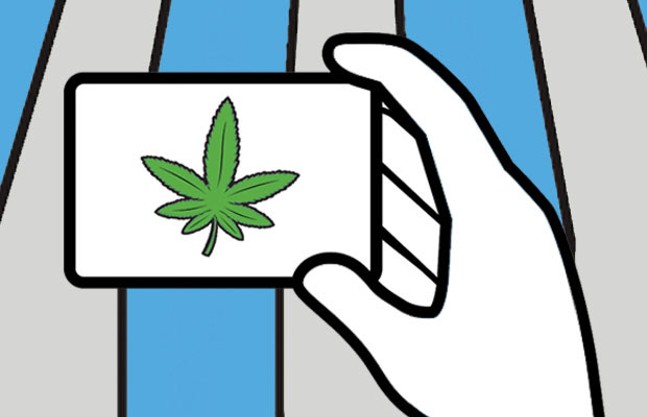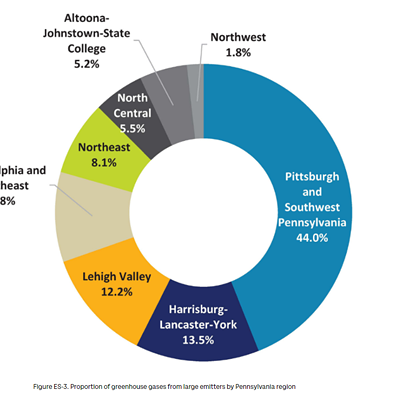They’re finally here. On Feb. 1, Cresco Yeltrah’s CY+ dispensary opened its doors in Butler, Pa., making it Southwestern Pennsylvania’s first medical-marijuana dispensary. Then on Feb. 7, Solevo Wellness of Squirrel Hill opened its doors with medical marijuana expected to arrive on Feb. 15.
Pennsylvania passed a law legalizing medical-marijuana in 2016 and since then, grow facilities in McKeesport and Greene County have sprouted up. Soon, patients will have legal access to marijuana products at dispensaries all over the region.
All patients need in order to access these newly available products is an official Pennsylvania medical-marijuana card, and City Paper wants to help people navigate the process.
1. Create an online patient profile
First, adult patients must fill out a form with accurate and up-to-date personal information, like name, address and date of birth, at the Pennsylvania Department of Health website. The state says the form should be filled out in all capital letters.
Patrick Nightingale, executive director of the Pittsburgh branch of the marijuana-advocacy group NORML, says some patients have had issues when filling out their applications, because they’re not entering their addresses exactly as it appears on their driver’s license or state-issued ID. To fill out an address correctly, patients should not include punctuation marks; should abbreviate words like “street” or “road”; and when directions are included in an address, patients are advised to input only the first initial. For example, “100 E MAIN ST” is the correct way to type 100 East Main Street.
A similar form must be filled out by those who are caregivers for medical-marijuana patients who are minors, have a disability, or require in-home support.
2. Get a doctor to sign off
Patients with serious medical conditions, as defined in state law, can qualify for a medical-marijuana card, but first must have a physician certify that they have at least one of those conditions. The 17 conditions are: ALS (Lou Gehrig’s disease), autism, cancer, Crohn’s disease, epilepsy, glaucoma, HIV/AIDS, Huntington’s disease, inflammatory bowel disease (IBD), intractable seizures, multiple sclerosis (MS), neuropathies, Parkinson’s disease, post-traumatic stress disorder (PTSD), sickle cell anemia, damage to spinal-cord nervous tissue with neurological indication of intractable spasticity, and chronic or intractable pain that has neuropathic origins or where therapy and opiate treatment have proven ineffective to treat that pain.
Nightingale says physicians will determine if patients qualify for medical marijuana to treat their symptoms, and says there’s some wiggle room in how doctors prescribe marijuana. For example, if someone has chronic pain as a result of chemotherapy cancer treatment, then they could qualify even if the cancer was in remission.
According to the state health department, there are 83 practices in the Pittsburgh metro area that can certify medical-marijuana-card applications. Nightingale encourages people to call doctor’s offices first to confirm physicians are involved in the state’s medical-marijuana programs. An up-to-date list of physicians is available on the Pennsylvania government official website.
3. Turn in application and pay fee
Once certified by an authorized physician, patients must return to the state’s health-department website. Patients then fill out the necessary information, including physician details and certification information. A $50 application fee must be submitted to complete the process. Some patients who receive government assistance are eligible for discounts. A card will arrive by mail.
4. Visit a dispensary
As of Feb. 14, only two dispensaries were open in Southwestern Pennsylvania, but many more are set to follow. A dozen dispensaries are slated to open in the region, and the law currently allows for a total of 15. Pittsburgh is currently getting four: Cresco Yeltrah, in the Strip District; Maitri Medicals, in Oakland; Solevo Wellness Centers, in Squirrel Hill; and Keystone Integrated Care, in Lawrenceville. Cranberry Township, in Butler County, is set to get two dispensaries, as is Zelienople. Washington, Pa., and Greensburg will have a dispensary each, as will Uniontown in Fayette County. Monroeville also has dispensary plans on the books. Check local dispensaries for hours of operation.





















